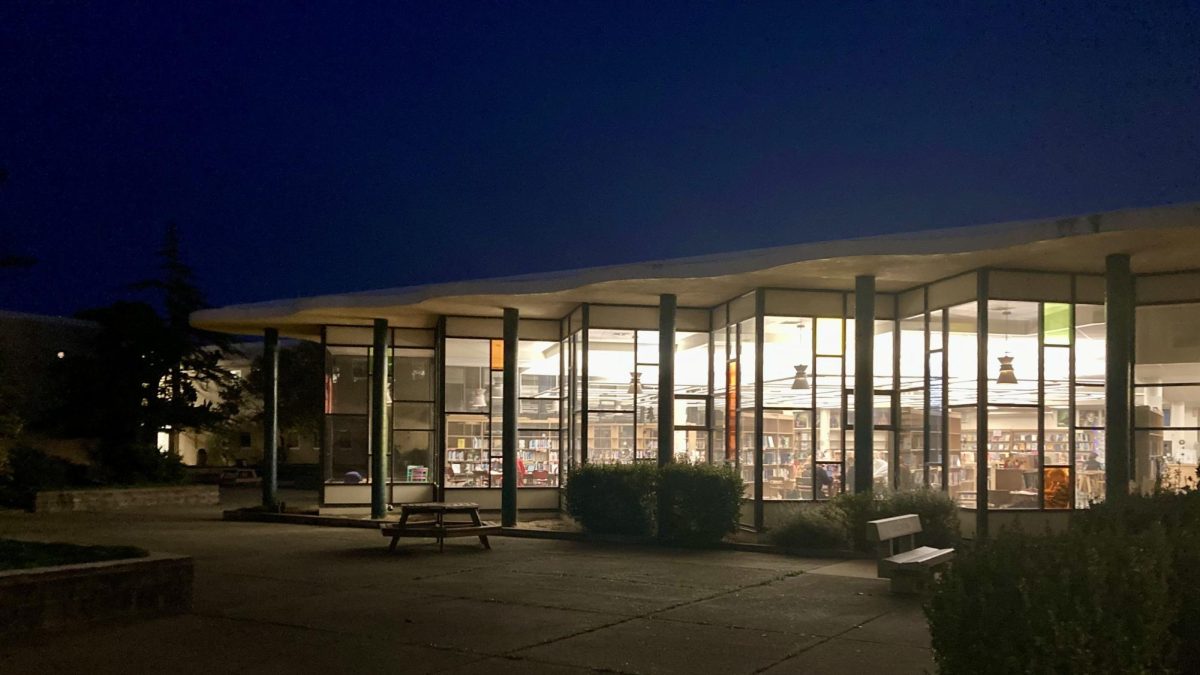Lana Del Rey’s new album makes us want to ‘Dance Till We Die’
April 2, 2021
After somewhat of a contentious year for Lana Del Rey, filled with mesh masks and Instagram posts indicating her oblivious sense of white privilege, she released her seventh album “Chemtrails Over the Country Club” on March 19. Del Rey, who is famous for her old fashioned Hollywood nostalgia and specific brand of sensitivity and soft pop/rock, exhibited her unique style in “Chemtrails Over The Country Club.” Like her other studio albums, Del Rey shows a focus on writing about white American culture as she mentions American rock icons Stevie Nicks, Joan Baez and Joni Mitchell in “Dance Till We Die,” and white picket fences and country clubs in “Chemtrails Over the Country Club.” While the album oftentimes has shaky vocals and is not as grand or monumental as its predecessors, her producer Jack Antonoff’s instrumentals and Del Rey’s lyrics shine through to create an album of depth, symbolism and intimacy.

After the enormous success of her psychedelic rock and indie pop Grammy nominated 2019 album, “Norman F***ing Rockwell,” many were skeptical about if she would live up to its critically acclaimed popularity. Unlike “Norman F***ing Rockwell,” which focuses on California and her ultimate urge to abandon it, “Chemtrails Over the Country Club” follows her story of leaving California and exploring the Midwest while coming out of the spotlight. Specific tracks mention states in the Midwest, including Oklahoma in “Tulsa Jesus Freak,” Nebraska in “Not All Who Wander Are Lost” and Florida in “White Dress.”
The album opens with “White Dress” which has Del Rey reminiscing about her days before fame. At first, this song is very shocking to listen to due to the somewhat off key and uneven pacing of her words, which were most likely done intentionally. However, the poetic lyrics that take the listeners on a trip down memory lane and the soft melody are able to overshadow this. The song is frighteningly haunting as Del Rey’s voice cracks throughout telling her story of life prior to her success in music.
Though this album has a wistful aesthetic and lacks the pop aspect usually included in Del Rey’s records, songs like “Dance Till We Die” provides arguably the most upbeat delightful chorus similar to hit, “Summertime Sadness” with a bit of jazz infused in it. She also hints at a cover of Joni Mitchell on the last track, “For Free” (feat. Zella Day and Weyes Blood), in which she covers “Ladies of the Canyon.” This story was originally written by Mitchell about a sidewalk musician playing happily without the pressures of fame, a concept Del Rey says she misses as her, Blood and Day’s voices come together to create a stunning harmony. Others include “Wild at Heart,” which Antonoff sampled from fan favorite “How to Disappear” on “Norman F***ing Rockwell.” As the chorus and cymbals swell together to create one of the best songs on the album, Del Rey tells of her desire to leave the music industry but her love of music and devotion to fans keeps her tied to the profession.
Similar to the transcendent sounds of past albums like “Lust for Life” and “Ultraviolence,” Del Rey’s memorable singing voice in “Tulsa Jesus Freak” helps indicate her struggles with sex, religion and alcohol. In the potentially most soft and slow track of the album yet one of the most emotional, “Yosemite,” Del Rey’s airy voice goes in and out of falsetto while relying on the instrumentals to provide a sense of tranquility that makes the listener feel as if they are floating out of reality.
Like “Yosemite,” Del Rey is most notably known for her somber melodies and lyrics, which is definitely present in “Chemtrails Over the Country Club.” Her duet with Nikki Lane on the track “Breaking Up Slowly” is a prime example of Del Rey’s ability to be completely sincere about her emotions through music with a delicate tune. While this song tells the story of country singer Tammy Wynette and her alcoholic husband, the emotion of Lane and Del Rey make this mournful country song a personal and heartbreaking story. Other tracks like “Not all Who Wander Are Lost” and single “Let Me Love You Like A Woman” lack the obvious lyrical depth and melody that Del Rey and Antonoff poured into other songs on the album.
One of the best songs on the record, “Dark But Just A Game” makes up for this. This song affirms Del Rey’s biggest message throughout the album, the expensive price of fame. This vulnerable song uses the guitar to create an unguarded melody that talks about the toll that fame has. Del Rey sings, “Wе keep changing all the time/The bеst ones lose their minds/So I’m not gonna change/I’ll stay the same.” She goes into detail about her wish to reject fame because she’s worried about changing and going crazy because of stardom, similarly to her idols Whitney Houston and Amy Winehouse, who are mentioned in the song.
When listening to the whole album at first, the songs seem slow and sound similar to the majority of songs Del Rey has come out with in the past. However, after listening to each one individually and paying attention to the lyrics, the listeners will notice the album’s lyrical profundity. While it is not necessarily her best album, it definitely conveys that she is still at her peak music career and hopefully will continue to remain popular when her sister album “Rock Candy Sweet” comes out on June 1.







